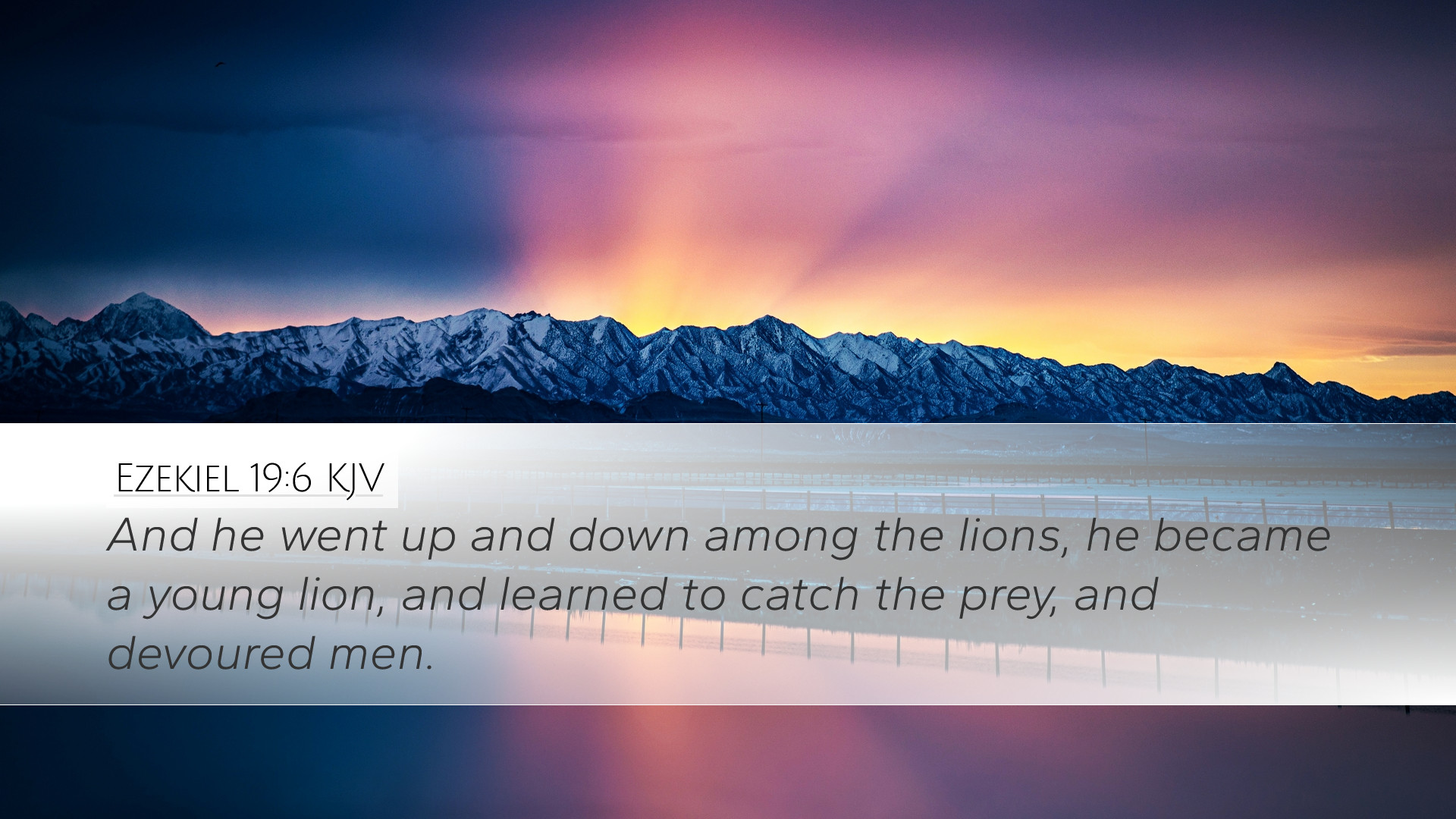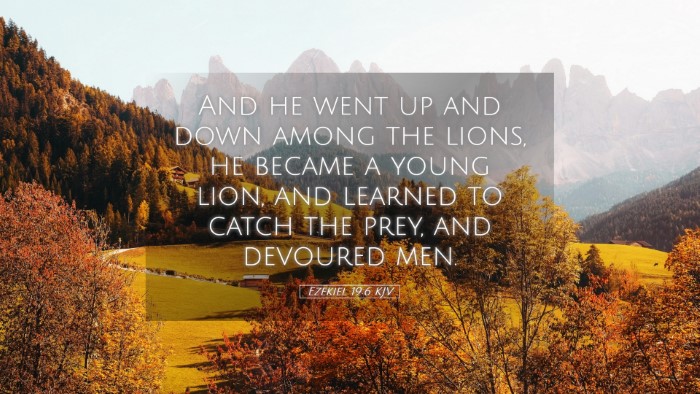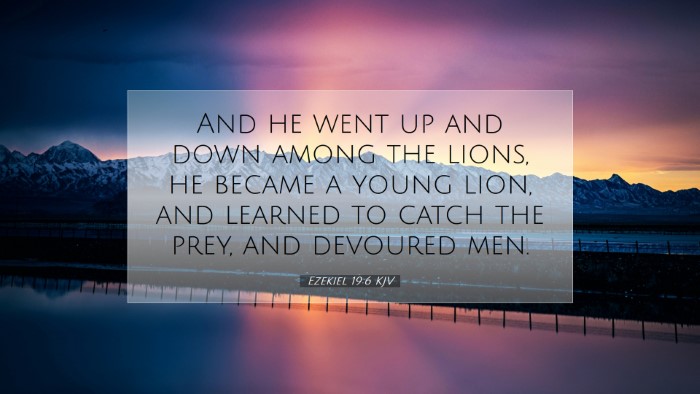Ezekiel 19:6 Commentary
Bible Verse: "And he went up and down among the lions, and became a young lion, and learned to catch the prey, and to devour men."
Introduction
Ezekiel 19 presents a lamentation for the princes of Israel, using the metaphor of lions to symbolize strength, bravery, and leadership. In verse 6, the imagery of a young lion in its prime captures important themes of growth, strength, and the eventual consequences of ungodly leadership.
Contextual Analysis
The chapter aims to address the state of the monarchy in Israel, particularly focusing on the downfall of leadership. This metaphor extends beyond individual kings to the nation as a whole. The lions represent the kings and leaders of Israel, and their rise and fall reflect the spiritual condition of God's people.
Commentary Insights
Matthew Henry’s Commentary
Henry notes that the young lion's transition to maturity signifies the beginning of strength, but he highlights that this power was not directed toward righteous purposes. The lion's ability to "catch the prey" symbolizes the successful exploits of the king, yet it is emphasized that such actions were conducted in opposition to God’s will. This serves as a reminder that strength, when divorced from divine guidance, leads to destruction.
Furthermore, Henry points out how this young lion, initially full of potential, ultimately succumbs to the pressures of worldly leadership and fails to fulfill his divine destiny as a just ruler. The verse serves as a cautionary tale about the pitfalls of leadership that prioritizes personal gain over the well-being of the people.
Albert Barnes’ Notes
Barnes elaborates on the significance of the imagery in this verse. He reflects on the characteristics of the lion, noting that lions are symbols of power and majesty. In the context of Israel, this lion represents actual leaders who, despite their initial prowess, become symbolic of the erosion of strength and virtue among Israel's leaders.
He observes that the phrase “went up and down among the lions” signifies both the lion’s leadership role and its engagement within the larger context of its environment. This implies that while the king may exhibit strength, the surrounding turmoil and chaos highlight a deeper dysfunction within the society he governs. Barnes encourages readers to consider the correlation between leadership and the moral state of the people.
Adam Clarke’s Commentary
Clarke reflects on the broader interpretations of this passage, recognizing the historical aspects of Israel’s monarchy that led to its exile. He draws connections between the lion’s behavior and the actions of the nation’s leaders who, despite their potential, led Israel away from God. This verse illustrates how leadership holds tremendous influence over a nation’s spiritual vitality.
Clarke posits that God’s departure from the leaders is the root cause of their inability to lead righteously. The “learned to catch the prey” phrase can be understood to signify the leaders' pursuit of selfish gain—an unfortunate reality for many in positions of power. This commentary urges biblical scholars and clergy to engage with the text as they consider the complexities of spiritual leadership in contemporary settings.
Theological Reflections
This verse and its context provoke critical theological reflections on leadership. The future of any community often rests upon the moral and spiritual integrity of its leaders. A key takeaway is the necessity of aligning leadership with God’s purposes, recognizing that power untethered from divine authority can lead to devastating consequences.
Application for Today’s Leaders
- Accountability: Leaders are accountable to God first and foremost, and their actions should reflect His character.
- Servant Leadership: True leadership in God's kingdom often embodies humility, self-sacrifice, and a focus on the welfare of others.
- Awareness of Influence: Those in leadership must understand the profound impact their decisions and actions have on their communities.
- Prayer and Guidance: Continuous prayer and seeking God’s wisdom is essential for making decisions that honor Him.
Conclusion
Ezekiel 19:6 serves as a powerful reminder of the responsibilities that come with leadership. The young lion's story encapsulates potential, growth, the quest for power, and the dangers associated with leadership that strays from divine path. For pastors, students, and theologians alike, this makes it imperative to examine their own leadership styles and align them with the teachings of Scripture, ensuring that their influence reflects the righteousness and justice that God desires.


